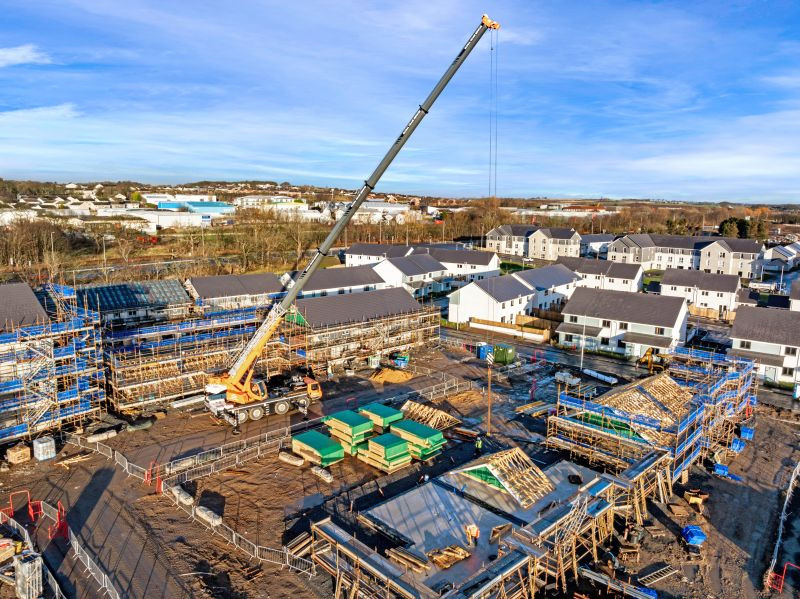
As government, developers and media turn to timber frame to solve the industry’s labour and sustainability crisis, Deeside Timberframe asks: what took so long?
For years, timber frame has been described as a “modern method of construction” that could, one day, revolutionise the way we build homes in the UK. That day has arrived.
In recent months, major developers, government bodies and mainstream media have all turned their focus to timber frame as the answer to the UK’s dual housing and labour crises. Bellway has announced its aim to double its timber frame usage, with a target of 30% of all homes built using timber by 2030. The Labour Party is backing timber as a key component of a greener, faster housebuilding strategy. And the UK Government has pledged to increase the use of domestic timber to help meet net zero targets and reduce reliance on imported construction materials.
But while the industry wakes up to timber frame’s potential, at Deeside Timberframe we’ve been building this way—and building better—for over 35 years.
“This isn’t about chasing a trend—it’s about continuing to deliver what we know works,” says Managing Director, David Crawford. “Timber frame solves so many of the industry’s challenges: it reduces build time, minimises the impact of weather, and helps developers stay on programme even in the face of bricklayer shortages and skills gaps. And from a sustainability perspective, it’s unmatched. We’ve always believed in the value of timber frame—it’s rewarding to see the wider industry finally catching up.”
The move away from traditional brick-and-block construction isn’t just about speed. It’s about resilience, scalability and sustainability.
With factory precision and a high degree of offsite manufacturing, timber frame construction requires fewer people on site and reduces delays due to weather and wet trades. It also offers greater programme certainty—something increasingly vital for housebuilders operating in volatile market conditions.
And when it comes to net zero, timber frame leads the way. Timber is a naturally renewable material with significantly lower embodied carbon than concrete or steel. When sourced responsibly, it supports both sustainability and local economies—a win-win for developers, communities and the environment.
As a long-established supplier to the UK private and affordable housing markets, Deeside Timberframe offers more than just product. We bring decades of technical expertise, capacity to scale, and a collaborative approach that puts our clients’ programme and cost certainty first.
The construction industry doesn’t need to wait for the future. It’s already here—and it’s built with timber.
For more information on Deeside Timberframe’s sustainability efforts and how the company can support your next project with sustainable timber frame solutions, please contact info@deesidetimberframe.com or call 01569 767 123.